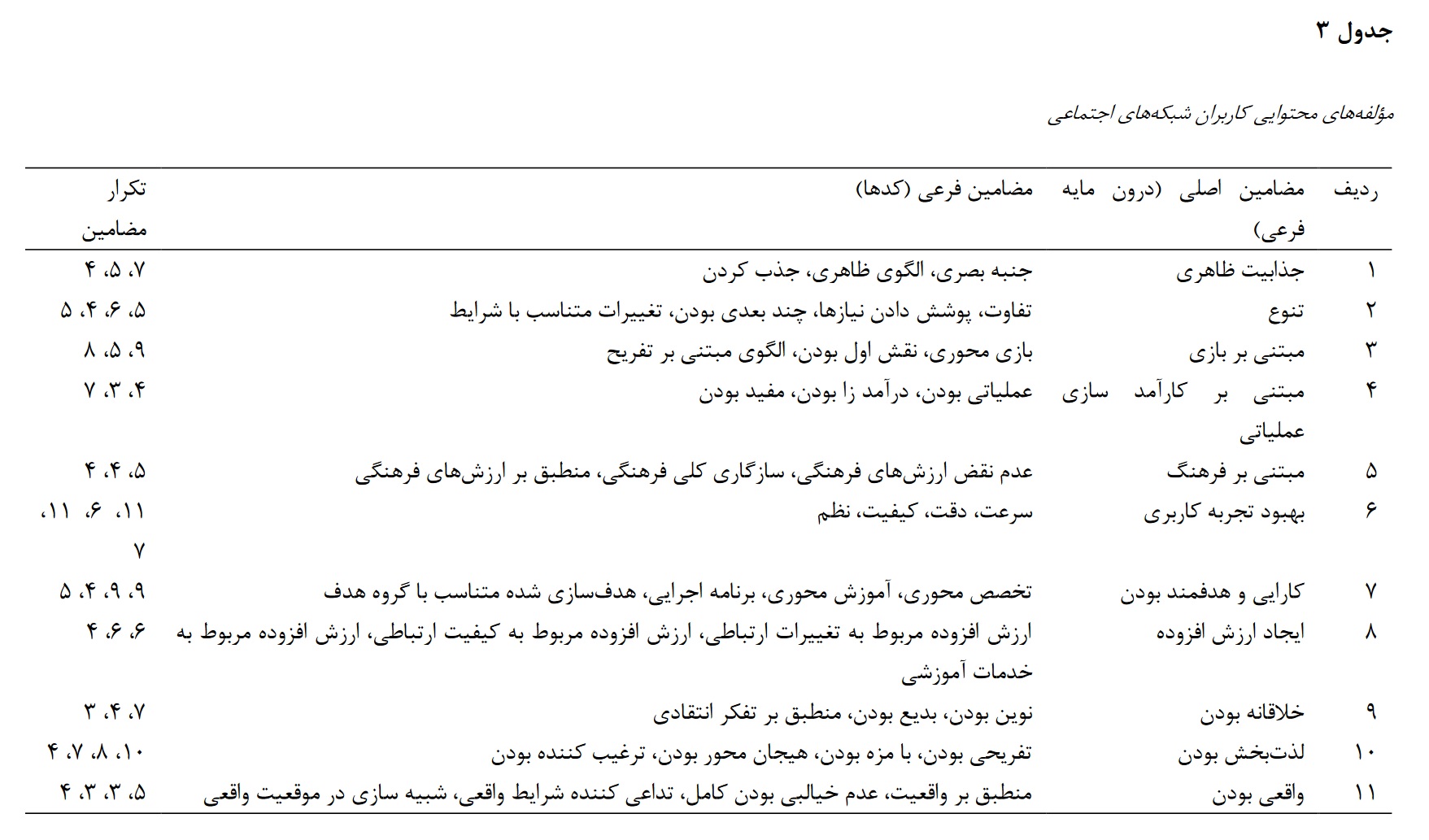Developing a Framework for Entrepreneurship Strategies Based on Virtual Reality in Social Network Users
Keywords:
Virtual Reality, Social Networks, Entrepreneurship Strategies, Qualitative Research, User Experience, Technological Infrastructure, Cultural AcceptanceAbstract
This study aims to develop a framework for entrepreneurship strategies based on virtual reality (VR) that is of interest to users of social networks. The research adopts a qualitative approach using semi-structured interviews for data collection. A total of 12 experts in fields related to VR and social media were purposefully selected for the study. Data saturation was achieved after these interviews. The data collected were analyzed using MaxQDA software to identify recurring themes and patterns. The study focused on understanding the technological infrastructure, perceived usefulness, public awareness, correct usage, advertising and promotion, ease of use, multidimensionality, modernization of social network relationships, reduction of distance and location importance, security, cultural acceptance, oversight, ethical principles, diversity, and social growth. The analysis revealed 15 main themes and 52 sub-themes. Key findings indicated that existing technological infrastructures, perceived usefulness, public awareness, correct usage, effective advertising, ease of use, multidimensional features, modernization of social network relationships, minimization of distance and location significance, enhanced security, cultural acceptance, effective oversight, adherence to ethical principles, diversity in content, and social growth are critical for the successful implementation of VR-based entrepreneurship strategies in social networks. These findings align with previous studies highlighting the potential of VR to transform user experiences, improve educational outcomes, and foster economic growth through innovative practices. The study concludes that VR can significantly enhance entrepreneurship strategies within social networks by improving user experiences, fostering social interactions, and driving economic growth. To maximize these benefits, attention must be given to developing robust technological infrastructures, promoting user awareness, ensuring security, and aligning VR applications with cultural and ethical standards. The proposed framework offers a comprehensive guide for leveraging VR in social network entrepreneurship.
Downloads
References
Allcoat, D., Hatchard, T. D., Azmat, F., Stansfield, K. E., Watson, D. G., & Mühlenen, A. v. (2021). Education in the
Digital Age: Learning Experience in Virtual and Mixed Realities. Journal of Educational Computing Research,
(5), 795-816. https://doi.org/10.1177/0735633120985120
Aytas, M., & Can, A. (2022). From Real Spaces to Virtual Spaces: The Metaverse and Decentralized Cinema. Journal
of Design for Resilience in Architecture and Planning, 3((Special Issue)), 49-59.
https://doi.org/10.47818/drarch.2022.v3si070
Bergeron, M., Lortie, C. L., & Guitton, M. J. (2015). Use of Virtual Reality Tools for Vestibular Disorders Rehabilitation:
A Comprehensive Analysis. Advances in Medicine, 2015, 1-9. https://doi.org/10.1155/2015/916735
Cha, H.-S., Choi, S.-Y., & Im, C. H. (2020). Real-Time Recognition of Facial Expressions Using Facial Electromyograms
Recorded Around the Eyes for Social Virtual Reality Applications. IEEE Access, 8, 62065-62075.
https://doi.org/10.1109/access.2020.2983608
Chen, F., Fu, L.-W., Wang, K., Tsai, S. B., & Su, C.-H. (2018). The Influence of Entrepreneurship and Social Networks
on Economic Growth—From a Sustainable Innovation Perspective. Sustainability, 10(7), 2510.
https://doi.org/10.3390/su10072510
Chuan, A., Zhou, J., Hou, R. M., Stevens, C. J., & Bogdanovych, A. (2020). Virtual Reality for Acute and Chronic Pain
Management in Adult Patients: A Narrative Review. Anaesthesia, 76(5), 695-704.
https://doi.org/10.1111/anae.15202
Golabchi, H., Kiaee, M., & Kameli, M. J. (2024). Designing a Superior Service Delivery Model in Education to Enhance
Public Satisfaction [Research Article]. Iranian Journal of Educational Sociology, 7(1), 189-197.
https://doi.org/10.61838/kman.ijes.7.1.18
Kim, C.-H., Cha, H.-S., Kim, J., Kwak, H.-K., Lee, W., & Im, C.-H. (2023). Facial Motion Capture System Based on
Facial Electromyogram and Electrooculogram for Immersive Social Virtual Reality Applications. Sensors, 23(7),
https://doi.org/10.3390/s23073580
Kuratko, D. F., & Morris, M. H. (2017). Examining the Future Trajectory of Entrepreneurship. Journal of Small Business
Management, 56(1), 11-23. https://doi.org/10.1111/jsbm.12364
Laffey, J. M., Schmidt, M., Galyen, K., & Stichter, J. P. (2012). Smart 3D Collaborative Virtual Learning Environments:
A Preliminary Framework. Journal of Ambient Intelligence and Smart Environments, 4(1), 49-66.
https://doi.org/10.3233/ais-2011-0128
Lang, R., & Fink, M. (2019). Rural Social Entrepreneurship: The Role of Social Capital Within and Across Institutional
Levels. Journal of Rural Studies, 70, 155-168. https://doi.org/10.1016/j.jrurstud.2018.03.012
Pimentel, D., Foxman, M., Davis, D., & Markowitz, D. M. (2021). Virtually Real, but Not Quite There: Social and
Economic Barriers to Meeting Virtual Reality’s True Potential for Mental Health. Frontiers in Virtual Reality, 2.
https://doi.org/10.3389/frvir.2021.627059
Rietveld, J., & Ploog, J. N. (2021). On Top of the Game? The double‐edged Sword of Incorporating Social Features Into
Freemium Products. Strategic management journal, 43(6), 1182-1207. https://doi.org/10.1002/smj.3362
Saad, S. B., & Choura, F. (2022). Effectiveness of Virtual Reality Technologies in Digital Entrepreneurship: A
Comparative Study of Two Types of Virtual Agents. Journal of Research in Marketing and Entrepreneurship, 24(1),
-220. https://doi.org/10.1108/jrme-01-2021-0013
Sharifian, H., Ashtiani, M. M. D., & Hajiheydari, N. (2017). Applying Data Mining Method for Marketing Purpose in
Social Networks: Case of Tebyan. International Journal of Electronic Marketing and Retailing, 8(2), 116.
https://doi.org/10.1504/ijemr.2017.10006396
Shen, B., Wei-ming, T., Guo, J., Cai, H., Wang, B., & Zhuo, S. (2020). A Study on Design Requirement Development
and Satisfaction for Future Virtual World Systems. Future Internet, 12(7), 112. https://doi.org/10.3390/fi12070112
Tecău, A. S., Tescașiu, B., & Constantin, C. (2019). Integrating Augmented Reality in the Social Media Platforms. The
Users’ Perspective. https://doi.org/10.35219/rce2067053251

Downloads
Published
Submitted
Revised
Accepted
Issue
Section
License
Copyright (c) 2024 Journal of Technology in Entrepreneurship and Strategic Management (JTESM)

This work is licensed under a Creative Commons Attribution-NonCommercial 4.0 International License.










